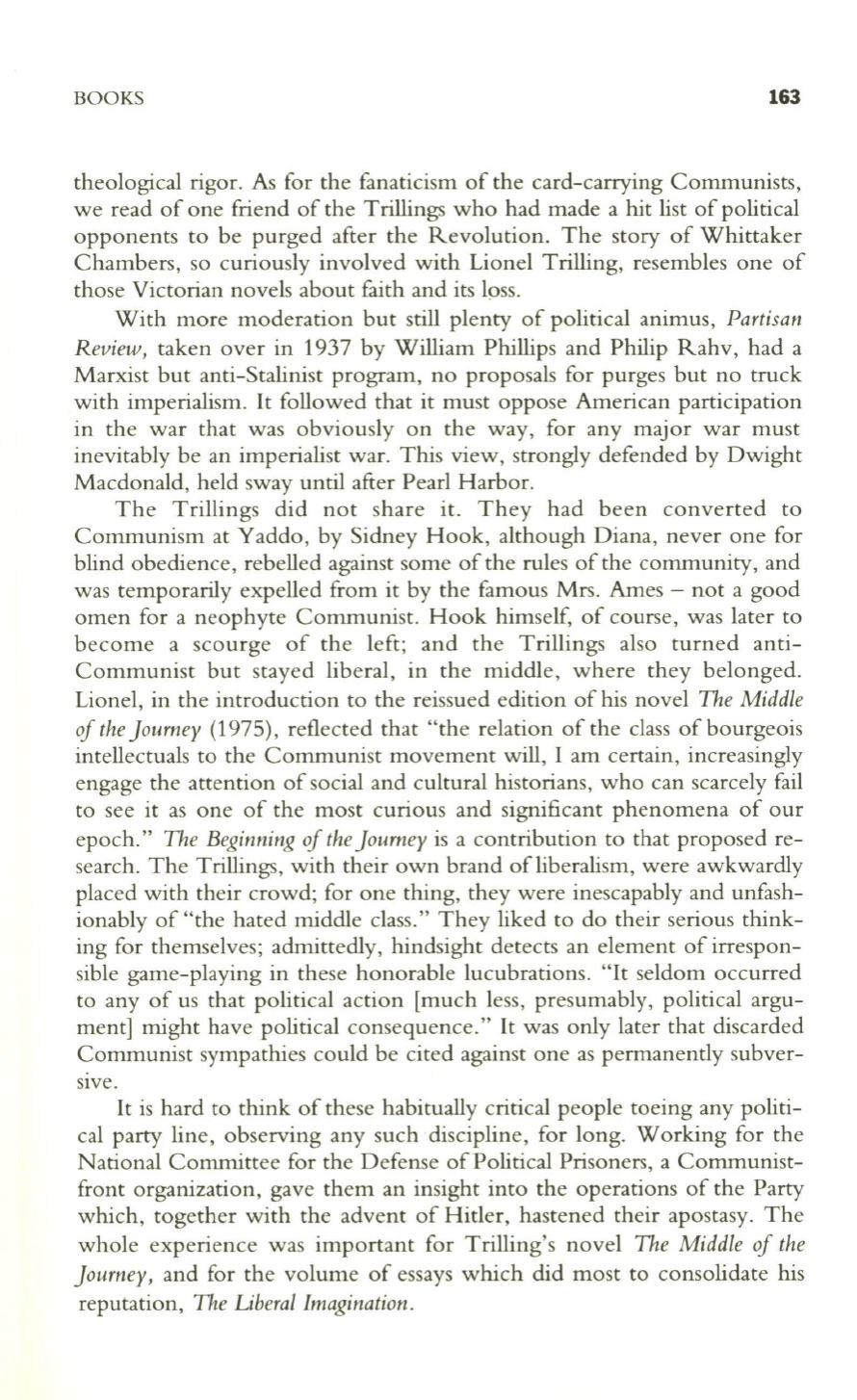
BOOKS
163
theological rigor. As for the fanaticism of the card-carrying Communists,
we read of one friend of the Trillings who had made a hit list of political
opponents to be purged after the Revolution. The story of Whittaker
Chambers, so curiously involved with Lionel Trilling, resembles one of
those Victorian novels about faith and its loss.
With more moderation but still plenty of political animus,
Partisan
Review,
taken over in 1937 by William Phillips and Philip Rahv, had a
Marxist but anti-Stalinist program, no proposals for purges but no truck
with imperialism. It followed that it must oppose American participation
in the war that was obviously on the way, for any major war must
inevitably be an imperialist war. This view, strongly defended by Dwight
Macdonald, held sway until after Pearl Harbor.
The Trillings did not share it. They had been converted to
Communism at Yaddo, by Sidney Hook, although Diana, never one for
blind obedience, rebelled against some of the rules of the community, and
was temporarily expelled from it by the famous Mrs. Ames - not a good
omen for a neophyte Communist. Hook himself, of course, was later to
become a scourge of the left; and the Trillings also turned anti–
Communist but stayed liberal, in the middle, where they belonged.
Lionel, in the introduction to the reissued edition of his novel
The Middle
of
the journey
(1975), reflected that "the relation of the class of bourgeois
intellectuals to the Communist movement will, I am certain, increasingly
engage the attention of social and cultural historians, who can scarcely fail
to see it as one of the most curious and significant phenomena of our
epoch."
The Beginning of the Journey
is a contribution to that proposed re–
search. The Trillings, with their own brand ofliberalism, were awkwardly
placed with their crowd; for one thing, they were inescapably and unfash–
ionably of "the hated middle class." They liked to do their serious think–
ing for themselves; admittedly, hindsight detects an element of irrespon–
sible game-playing in these honorable lucubrations.
"It
seldom occurred
to any of us that political action [much less, presumably, political argu–
ment] might have political consequence."
It
was only later that discarded
Communist sympathies could be cited against one as permanently subver–
Sive.
It is hard to think of these habitually critical people toeing any politi–
cal party line, observing any such discipline, for long. Working for the
National Committee for the Defense of Political Prisoners, a Communist–
front organization, gave them an insight into the operations of the Party
which, together with the advent of Hitler, hastened their apostasy. The
whole experience was important for Trilling's novel
The Middle of the
journey,
and for the volume of essays which did most to consolidate his
reputation,
The Liberal Imagination.


